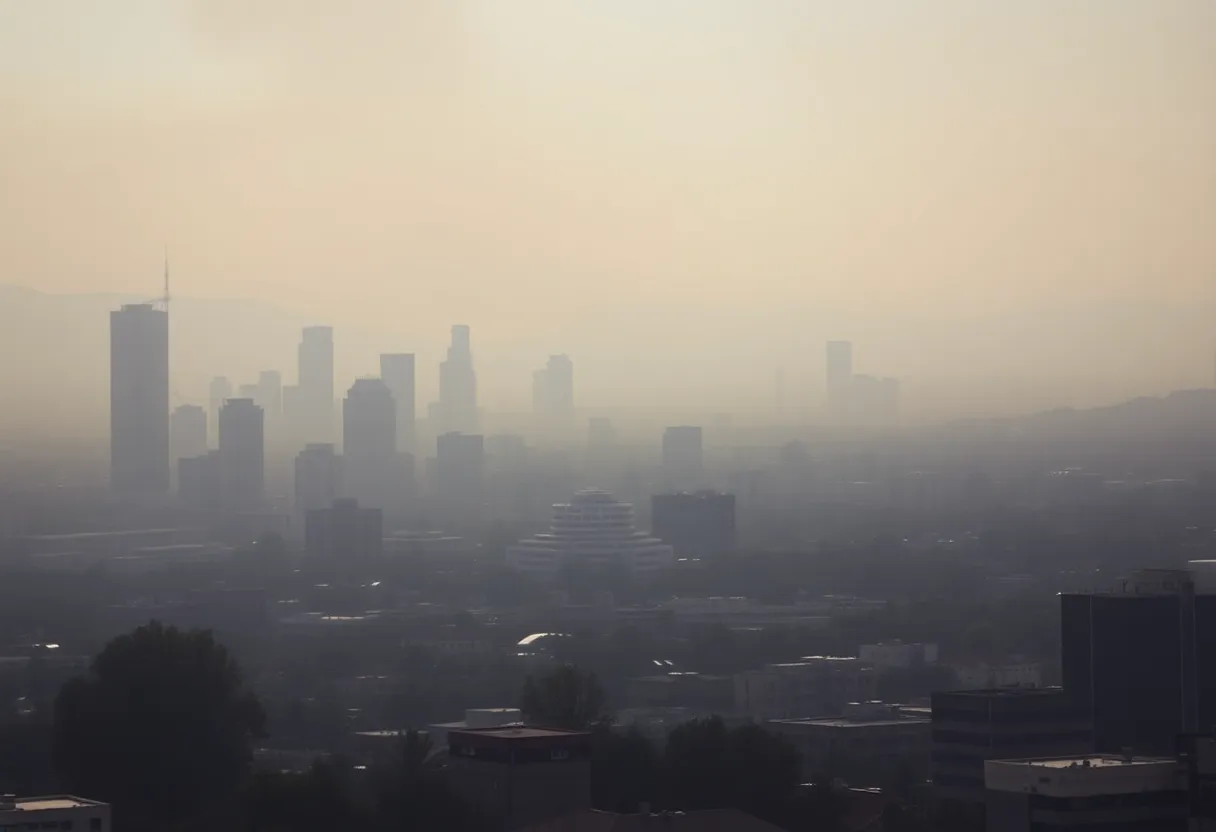News Summary
Michigan has extended its Air Quality Advisory due to smoke from over 600 active wildfires in Canada. Major cities like Detroit and Grand Rapids are experiencing unhealthy air quality, affecting sensitive groups. Residents are advised to stay indoors and avoid outdoor activities until conditions improve, as visibility has also worsened. Health officials recommend using air purifiers and keeping windows closed to mitigate the effects of smoke in the air. There’s hope for improvement with potential rain and winds on the way.
Michigan Extends Air Quality Advisory as Canadian Wildfire Smoke Fills State’s Air
If you’re living in Michigan or just passing through, you might have noticed the air feels a bit different lately. That’s because the Michigan Department of Environment, Great Lakes, and Energy (EGLE) has decided to keep the statewide Air Quality Advisory in place. It was originally set to expire on July 31, but it’s now extended until midnight on Saturday, August 2. The reason? Smoke pouring in from wildfires raging up north in Canada.
What’s Happening with Those Wildfires?
Right now, Canada is battling an astonishing 608 active wildfires, with over 430 of them burning out of control. The Canadian Interagency Forest Fire Centre is working around the clock to manage the situation, but the major wildfires are primarily happening in the provinces of Alberta, Saskatchewan, Manitoba, and the northwest region of Ontario. Wind that’s blowing in from the northeast is transporting all that smoke across the Michigan skies.
What’s This Smoke Doing to Our Air Quality?
Unfortunately, the smoke isn’t just a pretty sight. It’s actually caused many cities in Michigan to record what the experts call “Unhealthy” levels on the Air Quality Index (AQI) as of July 31. Cities like Detroit, Lansing, Grand Rapids, Kalamazoo, Benton Harbor, and Traverse City are among those that have seen some pretty poor air quality lately. In fact, on July 31, Detroit found itself listed among the top ten cities worldwide with the worst air quality.
Who’s Affected by Poor Air Quality?
The pollutants in Michigan’s air are expected to range between “Unhealthy for Sensitive Groups” and “Unhealthy” levels. This means that if you have certain health issues, especially lung diseases or conditions, you might want to be extra careful. This also applies to children, older adults, and anyone who spends a lot of time outdoors working or exercising. You may experience symptoms like coughing, wheezing, or even chest tightness when the air quality dips.
What Can Residents Do?
As we navigate these smoky days ahead, residents are advised to take some precautions. Staying indoors is a top recommendation, especially for those with respiratory conditions, until Friday when conditions might improve. Here are some handy tips:
- Keep your windows closed to avoid letting smoke in.
- Avoid outdoor activities if possible.
- If you have air purifiers, make sure they have high-efficiency filters to help clear your indoor air.
What’s Coming Next?
It’s not all doom and gloom, though! The forecast shows that some rain and winds could come our way, potentially helping to clear out some of the smoke. However, it’s essential to remember that any improvement in air quality might only be temporary.
Visibility Concerns
Furthermore, visibility has taken quite a hit due to the smoke, particularly in areas like Grand Rapids. You might find it a bit harder to see out there, so driving and outdoor activities should be approached with caution.
Stay safe, Michigan! Keep an eye on updates from health and environmental agencies, and let’s hope for clearer skies soon.
Deeper Dive: News & Info About This Topic

Author: STAFF HERE PETERSBURG WRITER
The ST PETERSBURG STAFF WRITER represents the experienced team at HEREStPetersburg.com, your go-to source for actionable local news and information in St Petersburg, Pinellas County, and beyond. Specializing in "news you can use," we cover essential topics like product reviews for personal and business needs, local business directories, politics, real estate trends, neighborhood insights, and state news affecting the area—with deep expertise drawn from years of dedicated reporting and strong community input, including local press releases and business updates. We deliver top reporting on high-value events such as Grand Prix of St. Petersburg, Localtopia, and SHINE Mural Festival. Our coverage extends to key organizations like the St. Petersburg Area Chamber of Commerce and St. Pete Downtown Partnership, plus leading businesses in finance, manufacturing, and healthcare that power the local economy such as Raymond James Financial, Jabil, and Bayfront Health St. Petersburg. As part of the broader HERE network, including HEREJacksonville.com, HEREOrlando.com, HERETallahassee.com, and HERETampa.com, we provide comprehensive, credible insights into Florida's dynamic landscape.





